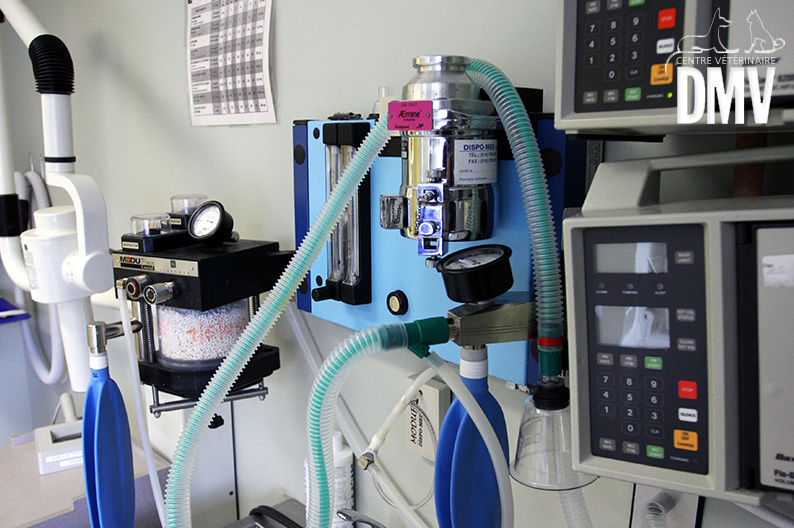Placing a patient under general anesthesia is a medical act that can be hazardous. General anesthesia is associated with physiological disturbances that may have adverse consequences, especially in patients suffering from various ailments or scheduled to undergo a delicate procedure.
Anesthetic is not risk free, every patient is unique and requires a tailored anesthetic protocol.
At CENTREDMVET, we are aware of the major role anesthesia plays in the care given to our patients. Anesthesiology is a multidimensional discipline sufficiently complex to explain the existence of a specific specialty, in veterinary as well as in human medicine.
Our anesthesiologist, Dr Jean-Jacques Kona-Boun, Diplomate of the American College of Veterinary Anesthesia and Analgesia, works to design an anesthetic protocol adapted to each patient under his responsibility. He can rely on a team of experienced and motivated veterinary technicians, as well as state-of-the-art equipment to deliver anesthesia and to monitor the vital functions of his patients: electrocardiography (evaluation of cardiac rhythm), capnometry (evaluation of pulmonary ventilation by the measurement of Co2), pulse oximetry (evaluation of blood oxygenation and pulse quality), blood pressure, thermometry, etc. Our patients under the care of our anesthesiologist benefit from cardiovascular and respiratory support as needed. If necessary, controlled mechanical ventilation is instituted, so as to normalize the respiratory parameters that could be altered.
One very important aspect of the care to our patients that cannot be dissociated from anesthesia is the prevention and treatment of pain. Our anesthesiologist, as well as each member of the team at the CENTREDMVET, makes each patient’s welfare his highest priority, and perioperative analgesia is one of his top concerns. Every patient under his responsibility is thoroughly evaluated at regular intervals during the postoperative period and a tailored analgesic protocol is designed. This specific analgesic protocol is instituted after discussion with the attending veterinarian and the veterinary technicians who will take care of the patient during the postoperative period.

Notes de conférences
Drug shortage : what are the alternatives?
Dexmedetomidine as premedication in dogs and cats

